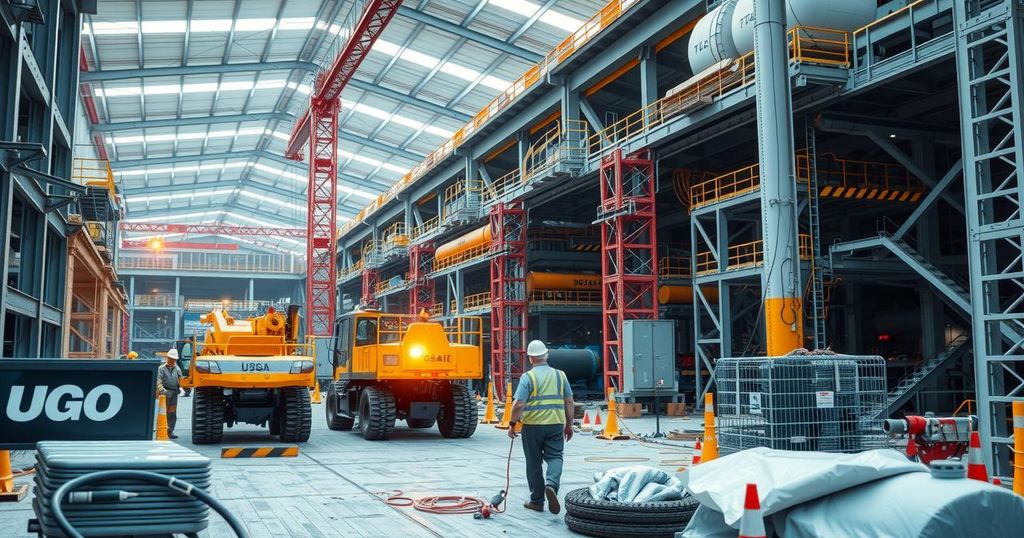BYD Factory Construction in Brazil Halted Amid Allegations of Forced Labor
Construction of BYD’s factory in Brazil has been halted due to allegations of forced labor involving over 160 Chinese workers found in “slave-like conditions”. Brazilian authorities report serious violations, including inadequate living conditions and confiscation of workers’ passports. BYD has terminated its contract with the construction company and relocated the workers to hotels, with an online hearing scheduled for companies to rectify the identified violations.
Construction of a factory for the Chinese electric vehicle manufacturer BYD in Camacari, Brazil, has been halted following revelations of alleged forced labor practices involving over 160 Chinese workers. Brazilian authorities, led by the local prosecutor’s office, reported that these individuals were found in conditions described as ‘slave-like’. As part of the government’s response, BYD’s Brazilian subsidiary severed its contract with the construction firm, Jinjiang Construction Brazil Ltd., which was responsible for the site.
The factory in Camacari was poised to become BYD’s largest electric vehicle production facility outside of Asia, with an estimated output capacity of 150,000 vehicles annually. Inspections conducted by Bahia’s Public Ministry for Works indicated serious violations, including inadequate living conditions where workers lacked basic amenities such as mattresses and private storage. For example, with only one bathroom available for every 31 workers, employees were compelled to wake at dawn to prepare for the workday.
The situation raised alarms regarding the possibility of forced labor, with reports indicating that workers had their passports confiscated and received only 40 percent of their salary in Chinese currency, while their employer retained the rest. In light of these violations, Brazilian authorities have organized an online hearing to allow BYD and Jinjiang to address the issues raised and to ensure that improvements are made to workers’ living conditions. In response, BYD’s Brazilian office stated that it does not condone violations of Brazilian law and has since relocated the affected workers to nearby hotels.
The situation surrounding BYD’s factory construction in Brazil has garnered significant attention due to the serious allegations regarding labor conditions. As global demand for electric vehicles is surging, companies have been expanding their manufacturing footprint internationally, often leading to scrutiny about labor practices in various countries. Brazilian authorities have emphasized their commitment to upholding labor rights and investigating allegations of slavery-like conditions, thereby highlighting the complexities and ethical responsibilities faced by multinational corporations.
In summary, the construction pause at BYD’s Brazilian factory underscores the critical issue of labor rights, especially in the context of globalization and the expansion of industries such as electric vehicle production. The alarming findings of precarious working conditions and potential forced labor practices have prompted immediate action from authorities, alongside a commitment from BYD to rectify these violations. The outcome of the upcoming hearing will be pivotal in ensuring compliance with labor laws and safeguarding the dignity of workers.
Original Source: www.abc.net.au




Post Comment